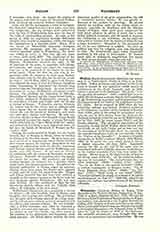

Wallon, HENRI-ALEXANDRE, historian and statesman, b. at Valenciennes (Nord), in 1812; d. at Paris, in 1904. Fellow of history and professor at the Lycee Louis le Grand, he was appointed (1840) master of conferences at the Ecole Normale, and, in 1846, Guizot’s assistant at the Sorbonne. His work, “L’esclavage dans les colonies” (1847), caused him to enter public life; he became assistant deputy for Guadeloupe at the Constituent Assembly and representative for the Department of the Nord at the Legislative Assembly (1849). But he resigned in 1850 when the law restricting suffrage was passed. Professor of history at the Sorbonne, a member of the Academy of Inscriptions (1850), prior to becoming its permanent secretary, he was in 1871 deputy from the Nord to the National Assembly, where he sat on the Right Center. On May 24? 1873, he voted against Thiers and the Broglie ministry. The attempted restoration of the monarchy having failed, Wallon allied himself with his friends on the Left Center and to him was due the amendment which brought about the passage of the constitutional laws; hence he was jestingly called the “Father of the Republic”. As minister of public instruction in Buffet’s cabinet (March, 1875-March, 1876) he favored the vote which secured liberty of higher education (July 26, 1875). Appointed senator for life at the end of the same year he henceforth defended Catholic interests in the Senate on the various occasions when they were under discussion. He was dean of the Paris Faculty of Letters for eleven years (1876-87). Of his works the following may be mentioned: “Du monotheisme chez les races semitique” (1859); “Jeanne d’Arc” (1860); “La vie de Jesus et son nouvel historien” (1864), a critical examination of Renan’s works; “Vie de Notre Seigneur Jesus Christ” (1805); “La Terreur” (1873); “Saint Louis et son temps” (1875); “Les representants du peuple en mission et la justice revolutionnaire en l’an 11” (1889-90), wherein he exposes the violence and arbitrariness of the Jacobin tribunals.
GEORGES BERTRIN

